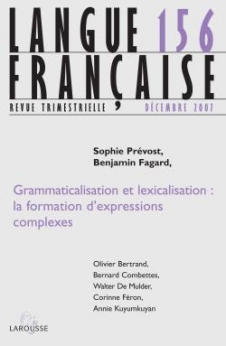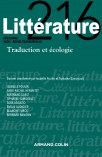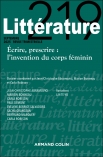
Langue française n° 156 (4/2007)
Pour acheter ce numéro, contactez-nous
Recevez les numéros de l'année en cours et accédez à l'intégralité des articles en ligne.
Only pour sûr (‘for sure’) is used in Present-Day French as a modal adverbial (although essentially in regional or popular use), but in Medieval French and even later, pour vérité, pour voir, pour vrai and pour certain (lit. ‘for truth’, ‘for true’ and ‘for certain’) were likewise used to indicate the speaker’s attitude regarding the truth of his proposition. While most modal adverbials originate in a clause-internal adverbial, the data suggest that the adverbials studied here originate in prepositional phrases which originally functioned as object predicatives (tenir/dire pour vrai/vérité… que P ‘to hold/give for true/truth… that P’). Most mechanisms usually involved in grammaticalization occurred in the shift from object predicatives to modal adverbials (reanalysis, decategorialization, generalization, subjectification) and, in some respects, modal adverbials do assume a grammatical function ; nevertheless, if we are to refer to Traugott’s most recent works, we cannot consider this evolution to be, strictly speaking, a grammaticalization.

